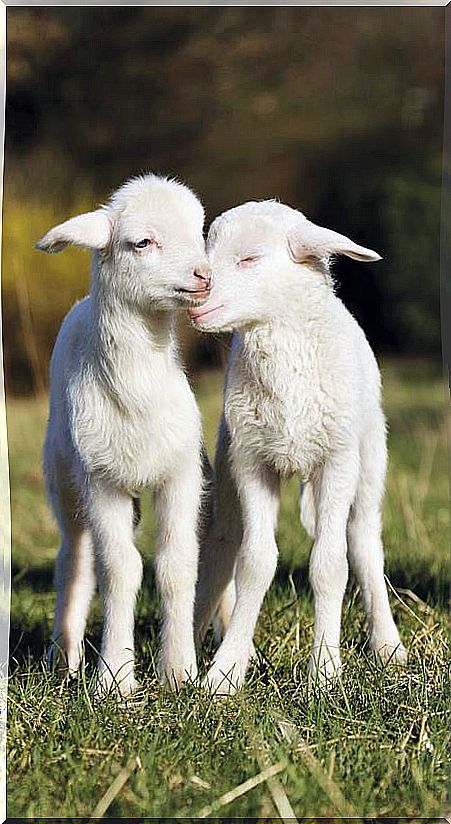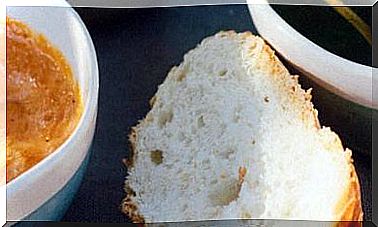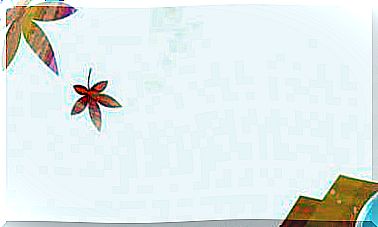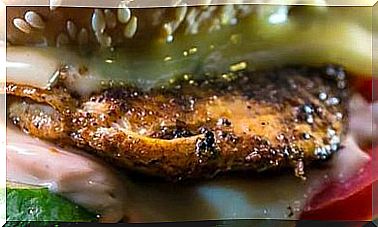The Power Of Tenderness: A Talisman To Survive
There is nothing deeper than a tender gesture that goes beyond the skin and touches the soul of the other. Loneliness vanishes and comforts when hope fails.

A few weeks ago a baby was born in my family. It’s a girl. She was admitted to the hospital’s newborn intensive care unit for several days. When I came to see her and found her in the nest surrounded by babies – many of them tiny – struggling to survive, an immense tenderness invaded me.
He contemplated the faces of the people who were around and they all transmitted to those beings who had just come to life the strength to move on.
Those gazes full of disinterested and pure love, that desire for well-being towards another being, without looking for anything in return, seemed to cross all barriers helping them to navigate the loneliness of the incubator, the inherent loneliness of existence itself.
The tenderness of contact, a primary drive
Such is tenderness, the backbone of life, its sustenance. We are children of tenderness despite not always clearly remembering the dent that each of his gestures produced on us. If someone hadn’t given us a certain amount of tenderness, none of us could have survived.
Scientists now marvel at the immense power of the baby’s skin-to-skin contact with the mother to shape that blank canvas that is the newborn’s brain. But poets like Paul Valéry already guessed it: ” The skin is the deepest part of the human being .”
Stroking is even more important than food : psychologist Harry Frederick Harlow conducted an experiment with monkeys who lived with a wire mother who carried a bottle and a felt mother who did not feed, but whose touch was very soft. The monkeys used to feed by approaching the wire mother and then huddling next to the felt mother.
At one point, a noisy mechanical bear playing a drum was brought into the cage. Faced with stress, the monkeys remained all the time huddled against their felt mother, disregarding the bottle. Harlow concluded that food does not base love, but that there is a primary drive based on the tenderness of contact.
A talisman to survive
Tenderness nurtures in all stages of life, even before birth. It makes life happy, helps to grow and to go through the most difficult moments. ” Without tenderness the small mammal, especially the human, cannot build up. Without tenderness the adolescent cannot emancipate himself, nor the adult form a couple, nor the old man die “, says Patrice van Eersel.
The neurologist and psychiatrist Boris Cyrulnik assures that it is also the tenderness received in the first months of life – recorded in body and mind forever – that makes it possible for a child to forge new bonds after being abused. ” The injured child will instinctively know that he has known positive and pleasant feelings and these will be the ones that will help him lift his head out of the water, ” he says.
Tenderness is therefore the basis of resilience. And it has the power to give us back the zest for living even in the most uneasy moments. ” When we see a gesture of kindness, when we taste the beauty of a face, a work of art, a gesture of benevolence, we feel, renewed, the desire to live; while when everything that surrounds us is ugliness and cruelty we experience the disenchantment, the desire to die, to erase ourselves from this damn world. “
“Innocence awakens tenderness and tenderness makes us trust the world and the human beings that inhabit it. The only thing that saves human bonds from the logic of interest is the tenderness that we are capable of living through them “, Francesc Torralba writes in La ternura (Ed. Milenio).
The risk of showing oneself as one is
By saving us from our self-absorption with a gesture, with a glance, tenderness removes loneliness and suffering, allows us to fill ourselves with the presence of the other and discover the beauty of living.
However, our society shuns tenderness out of fear that arouses its ability to break down masks and armor. By softening, one softens. The person shows himself and delivers as he is, which in a rationalistic environment can be taken as a sign of weakness.
Certain authors claim the right to regain tenderness in the private and public spheres as a way to create a better world. They rely on its integrating power and the ability it triggers to open up to the other, recognizing him with respect and love, both in his fragility and in his strength. Tenderness awakens our joy with the joy of the other, the secret of happiness.
The subtlety of tenderness
But how could we better define cuteness? What ingredients are part of it? From the outset the tenderness is subtle and is perceived above all with the heart because, as Antoine de Saint Exupéry would say , ” the essential is invisible to the eyes” . It does not respond to a voluntary act, but one is possessed by it.
A light touch of the fingertips on the cheek, a soft kiss, a glance, interlaced fingers … can remain in an elusive sensation that is diluted in the immensity of time, while becoming a comfort of by life just by evoking again that meeting of souls, that caress that from the skin has permeated our entire interior.
Sometimes you become aware of your lack when you meet again with its warmth and, when you thaw, you realize how much you needed that hug, that gesture.
He perceives the time that he had not been authentically with another being and of the powerful effect that this form of contact has had that saves him from the mental cage, from silent and hidden suffering. Someone, without trying to change anything, has told us without words: ” I see you, you are not alone .”
Elisabeth Kübler-Ross, who dedicated most of her life to accompanying people who were going to die and used tenderness to facilitate this transit, assured that physical contact was not even necessary.
When someone was about to die, he would sit next to him, put his hand close without touching him and wait for a gesture of approach so as not to invade his privacy. That is the fragile art of tenderness.
Basic ingredient in the couple
Because intrinsic to tenderness is respect. It appears when there is a recognition of the freedom of the other. There is no need for possession, but a total acceptance of the other person and their circumstance, seeing it beyond professional, cultural, economic, racial, religious labels …
It also requires dedication, generosity and transparency, even if only for a short moment. The expression of tenderness renders us before the other with spontaneity and authenticity. It is steeped in innocence. Jacques Brel sang: ” Tenderness asks for nothing, expects nothing, is self-sufficient .”
That is why it should be cultivated in every relationship. Opening up to that vibration, where the best of us contemplates the best of the other, is fascinated by their way of being and acting. Let yourself be carried away by the feeling and not fear that the “you” will become more important than the “me”.
Tenderness reaches where words can neither contain nor define. It involves the eroticism of beauty and transcendence. Survive passion and facilitate mutual evolution.
” Tenderness supposes two subjects in presence. It is neither possession nor submission, which reify, nor passion nor addiction, which amputates and merges the fraction of the subjects “, writes the psychiatrist Jean-Pierre Klein, for whom tenderness is an ingredient basic in the couple relationship.
A state of the heart
Tenderness is also pure presence. Body, mind and spirit experience without cracks the power of tenderness that heals both those who feel it and those who receive it. Thoughts are silenced by the certainty that there is a deep bond between me and others.
Our essence is revealed when we perceive that of the person who has awakened that beautiful feeling. Beyond the hand, the look, the whisper or the smile that conveys it, tenderness is a state of the heart that expands, a mysterious energy that reminds us of our humanity.
” Tenderness is not a permanent state, but a perpetual discovery that each one can make, not through fragility, appearances or the routine of customs, but in a conscious and complete experience of the present. Tenderness is not born of the impossible, but vitally engenders the possible “, says Jacques Salomé.
6 ways to grow it
Although some people find it easier than others to connect with this urge, the art of tenderness can also be cultivated.
- Stroke. It is one of the great ways to express tenderness, a lover of non-verbal language, touch and caring for the body above logic and prejudice.
- Look into the eyes in silence with the intention of perceiving the other beyond what is apparent.
- Open up to innocence and let that child that we have hidden to survive in the adult world to surface.
- Embracing the vulnerability of the sick or elderly, recognizing their own fragility.
- Get excited with the beauty of art, a landscape or music.
- Speaking in whispers is the advice of the writer Roland Barthes to call for tenderness.
Bibliography
- Jacques Salomé. How to attract tenderness (Ed. Obelisco)
- Ami Tanner. The healing power of tenderness (Ed. Robinbook)
- Juan Rof Carballo. Violence and tenderness (Ed. Espasa Calpe)
- Jaime Rodríguez. Praise of tenderness (Ed. Almuzara)









